Steering Committee
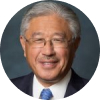
Victor J. Dzau, MD, is the President of the National Academy of Medicine (NAM), formerly the Institute of Medicine (IOM). In addition, he serves as Vice Chair of the National Research Council. Dr. Dzau is Chancellor Emeritus and James B. Duke Distinguished Professor of Medicine at Duke University and the past President and CEO of the Duke University Health System. Previously, Dr. Dzau was the Hersey Professor of Theory and Practice of Medicine and Chairman of Medicine at Harvard Medical School’s Brigham and Women’s Hospital, as well as Bloomfield Professor and Chairman of the Department of Medicine at Stanford University.
Dr. Dzau is an internationally acclaimed physician scientist and leader whose work has improved health and medicine in the United States and globally. His seminal work in cardiovascular medicine and genetics laid the foundation for the development of the class of lifesaving drugs known as ACE inhibitors, used globally to treat hypertension and heart failure. Dr. Dzau pioneered gene therapy for vascular disease and was the first to introduce DNA decoy molecules in humans in vivo. His pioneering research in cardiac regeneration led to the Paracrine Hypothesis of stem cell action and his recent strategy of direct cardiac reprogramming using microRNA. He maintains an active NIH-funded research laboratory.
Dr. Dzau is a leader in health and heath policy. At the NAM, he has led important initiatives such as Vital Directions for Health and Health Care, the Action Collaborative on Countering the US Opioid Epidemic, and the Action Collaborative on Clinician Well-Being and Resilience. Under his tenure, the NAM has advanced efforts to improve health equity and address racism throughout its programmatic activities, especially the Culture of Health Program. Most recently, the NAM launched a Grand Challenge in Climate Change and Human Health & Equity to reverse the negative effects of climate change on health and social equity by activating the entire biomedical community, communicating and educating the public about climate change and health, driving changes through research, innovation and policy, and leading bold action to decarbonize the health care sector.
As a global health leader, he helped design and launch the National Academies initiatives on Global Health Risk Framework; Global Health and Future Role of the US; Crossing the Global Quality Chasm and Human Genome Editing. The NAM Global Grand Challenge for Healthy Longevity represents his vision to inspire across disciplines and sectors to coalesce around a shared priority and audacious goal to advance health.
He has led the NAM’s response to COVID-19, which includes numerous committees, reports, consultations and communication on a range of issues including public health, vaccine allocation, health equity and mental health. He has worked tirelessly to engage with the global response to COVD-19 by providing leadership as a member of the Global Preparedness Monitoring Board, co-chair of the G20 Scientific Expert Panel on Global Health Security, Advisor to the G20 High Level Independent Panel on Financing and a principal of the ACT-Accelerator which includes COVAX, the global collaboration for accelerating the development, manufacture and equitable distribution of COVID-19 vaccines.
He is active in advising science and health in US and globally. He has served as a member of the Advisory Committee to the Director of the National Institutes of Health (NIH), chaired the NIH Cardiovascular Disease Advisory Committee and NHLBI Cardiovascular Progenitor Cell Biology Consortium. Currently, he chairs the Cardiovascular Progenitor Cell Translational Consortium. He is a member of the Health and Biomedical Sciences International Advisory Council of Singapore, as well as a board member of the Imperial College Health Partners, UK and the Gairdner Foundation. He chairs the International Scientific Advisory Committee of the Qatar Precision Medicine Institute, the Scientific Boards of the Peter Munk Cardiac Center, University of Toronto and Institute of Cardiovascular and Medical Sciences, University of Glasgow. He served on the Board of Health Governors of the World Economic Forum and chairs its Global Futures Council on Healthy Longevity.
Among his many honors and recognitions are the Max Delbreck Medal from Charite, Humboldt and Max Planck, Germany, the Distinguished Scientist Award from the American Heart Association, Ellis Island Medal of Honor, and the Henry Freisen International Prize. In 2019, he was named an Honorary Citizen of Singapore- the highest level of honor bestowed to a foreign citizen conferred by the President of Singapore. He has been elected to the National Academy of Medicine, the American Academy of Arts and Sciences, the European Academy of Sciences and Arts, UK Academy of Medical Sciences, the Japan Academy, Mexican Academy of Medicine, Chinese Academy of Engineering and Academia Sinica. He has received 16 honorary doctorates.
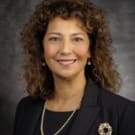
Theresa A. Maldonado is the systemwide Vice President for Research & Innovation (R&I) at the University of California Office of the President (UCOP). In this role she leads large-scale efforts that utilize the expertise and assets of the UC system’s 10 campuses, three UC-managed DOE national labs, UC Agriculture & Natural Resources, and UC Health. As the UC system’s chief research officer, VP Maldonado champions team science; engages key stakeholders; welcomes collaborators historically excluded from participation; and harnesses the power of UC to produce transformative solutions via research, research translation, innovation, and policy.
In addition to her 34-year academic background in Texas and California, Dr. Maldonado has extensive experience at the federal level, having served two terms at the National Science Foundation, including four years as Division Director in the Engineering Directorate. At NSF she was engaged in advancing engineering research centers, education, and commercialization initiatives. She served on several NSF committees, including the Math and Physical Sciences Advisory Committee (MPSAC), as well as chaired the Committee on Equal Opportunities in Science and Engineering (CEOSE). As a junior faculty, she was recognized with an NSF Presidential Young Investigator award.
Before entering academia, Dr. Maldonado was a member of technical staff at AT&T Bell Laboratories. She earned the BEE with Highest Honors, MSEE, and PhD degrees in Electrical Engineering from the Georgia Institute of Technology. Her research background is in nonlinear optical devices and materials, electromagnetics, and optical fiber technologies. Dr. Maldonado is a registered Professional Engineer in Texas. She is also President-Elect of the American Association for the Advancement of Science (AAAS).

Christopher A. Viehbacher joined Biogen as President and Chief Executive Officer and a member of the Board of Directors in November 2022.
Viehbacher has extensive international experience in both large pharmaceutical companies and entrepreneurial biotech companies and has a passion for advancing science for the benefit of patients and public health.
After 20 years with GlaxoSmithKline, he served as global CEO of Sanofi for six years. Under Viehbacher’s leadership, Sanofi strengthened and diversified its R&D pipeline and delivered significant value to shareholders.
More recently, Viehbacher and Ernesto Bertarelli co-founded Gurnet Point Capital, a Cambridge-based healthcare investment fund, which has led to the creation and continuing development of many innovative companies. He has also chaired or been a member of the board of a number of entrepreneurial companies in biotechnology. Viehbacher has always been a strong advocate for innovation and public health. He has received a number of awards including the Légion d’Honneur from France. He is Trustee of Northeastern University, a member of the Board of Fellows of the Stanford Medical School and a member of the MIT President’s CEO Advisory Board.
He graduated from Queen’s University in Kingston, Ontario, Canada, and he speaks French, German and English.


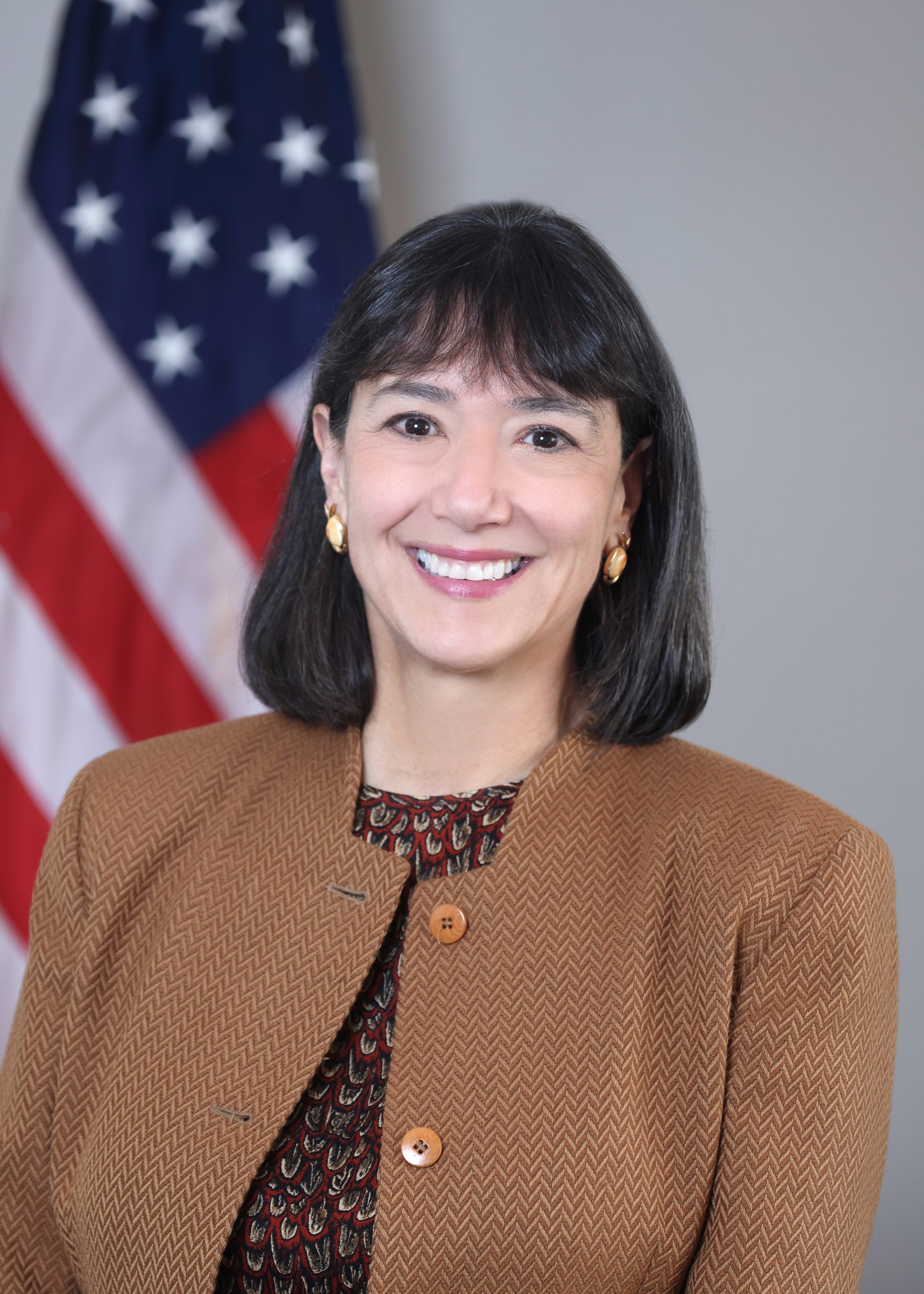
Monica M. Bertagnolli, MD, was the 17th director of the National Institutes of Health (NIH). She was nominated by President Joe Biden on May 15, 2023, confirmed by the U.S. Senate on November 7, 2023, and took office on November 9, 2023. She is the first surgeon and second woman to hold the position. As the NIH Director, Dr. Bertagnolli oversaw the work of the largest funder of biomedical and behavioral research in the world. She previously served as the 16th director of the National Cancer Institute (NCI), the Richard E. Wilson Professor of Surgery in surgical oncology at Harvard Medical School, a surgeon at Brigham and Women’s Hospital and a member of the Gastrointestinal Cancer Treatment and Sarcoma Centers at Dana-Farber Cancer Institute.
Throughout her career, Dr. Bertagnolli has been at the forefront of the field of clinical oncology. Her laboratory focused on advancing our understanding of the genetic drivers of gastrointestinal cancer development and the role of inflammation as a promoter of cancer growth. As a physician–scientist, she led translational science initiatives from 1994 to 2011 within the NCI-funded Cooperative Groups Program (now known as NCI’s National Clinical Trials Network), and from 2011–2022 served as group chair of the Alliance for Clinical Trials in Oncology, a National Clinical Trials Network member organization. In addition, from 2007–2018, she served as the chief of the division of Surgical Oncology for the Dana-Farber Brigham Cancer Center.
Dr. Bertagnolli has championed collaborative initiatives to transform the data infrastructure for clinical research and is the founding chair of the minimal Common Oncology Data Elements (mCODE) executive committee. She also is a past president and chair of the board of directors of the American Society of Clinical Oncology and has served on the board of directors of the American Cancer Society and the Prevent Cancer Foundation. In 2021, she was elected to the National Academy of Medicine, having previously served on the National Academies National Cancer Policy Forum.
The daughter of first-generation Italian and French Basque immigrants, Dr. Bertagnolli grew up on a ranch in southwestern Wyoming. She graduated from Princeton University with a Bachelor of Science in Engineering degree and attended medical school at the University of Utah. She trained in surgery at Brigham and Women’s Hospital and was a research fellow in tumor immunology at the Dana-Farber Cancer Institute.

Professor Paula T. Hammond is Institute Professor at the Massachusetts Institute of Technology and a member of MIT’s Koch Institute for Integrative Cancer Research. She is the Vice Provost for Faculty at MIT as of January 2024. She served as the Head of the Chemical Engineering Department at MIT from 2015 to 2023.
The core of Prof. Hammond’s work is the use of electrostatics and other complementary interactions to generate functional materials with highly controlled architecture. Her research in nanomedicine encompasses the development of new biomaterials to enable drug delivery from surfaces with spatio-temporal control. She also investigates novel responsive polymer architectures for targeted nanoparticle drug and gene delivery. The newest developments from her lab offer a promising approach to the delivery of proteins, siRNA and mRNA using electrostatic assembly as a means of modifying surfaces, nanoparticles and lipid complexes for targeted systemic delivery, opening potential for vaccines and immunotherapies. Professor Paula Hammond was elected into the National Academy of Science in 2019, the National Academy of Engineering in 2017, the National Academy of Medicine in 2016, and the 2013 Class of the American Academy of Arts and Sciences. She is also a member of the National Academy of Inventors (2021). She received the American Institute of Chemical Engineers (AIChE) Margaret H. Rousseau Pioneer Award for Lifetime Achievement by a Woman Chemical Engineer in 2019 and gave the Materials Research Society (MRS) David Turnbull Lectureship, 2019. Professor Hammond has published over 330 papers, and over 20 patent applications. She is the co-founder and member of the Scientific Advisory Board of LayerBio, Inc., a member of the Scientific Advisory Board of Moderna Therapeutics and a member of the Board of Alector Therapeutics and the Board of Sail Biomedicines, a Flagship company. In 2021, Professor Hammond was selected to become a member of the President’s Council of Advisors on Science and Technology (PCAST). In January 2025, President Biden awarded Professor Hammond the honorable National Medal of Technology and Innovation.
In terms of educational background, Prof. Hammond is from Detroit, Michigan, and received her B.S. in Chemical Engineering from MIT, then worked for two years in industry, moved to Atlanta to get an M.S. in Chemical Engineering at Georgia Tech, before returning to MIT for her PhD. She held the Ford Foundation Dissertation Fellowship, and on completing her PhD, was an NSF Postdoctoral Fellow at the Harvard University Chemistry Department before returning to MIT as a faculty member.


Stephen Quake is Head of Science at the Chan Zuckerberg Initiative, overseeing CZI’s science grant programs, technology development, and the CZ Biohub Network. His contributions to science are varied and include the invention of the biological equivalent of the integrated circuit, the development of whole organism cell atlases, and the creation of diagnostics that have made medicine safer by replacing invasive biopsies such as amniocentesis with simple blood tests. Steve has received numerous awards for his discoveries and has been elected to several scientific honorary societies, including the National Academy of Sciences, the National Academy of Engineering, The National Academy of Medicine, and the National Academy of Inventors. He has published more than 300 papers cumulatively cited more than 100,000 times. Steve also holds a faculty position at Stanford University, where he is the Lee Otterson Professor of Bioengineering and Applied Physics. Previously he was the founding co-president of the Chan Zuckerberg Biohub (2016-2022), investigator of the Howard Hughes Medical Institute (2006-2016), and professor at the California Institute of Technology (1996-2005).
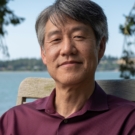
Peter Lee is President, Microsoft Research, at Microsoft. He leads Microsoft Research across its nine laboratories around the world. He also oversees several incubation teams for new research-powered lines of business, the largest of which today is Microsoft’s growing healthcare and life sciences effort. Dr. Lee has extensive experience in managing fundamental research to commercial impact in a range of areas, spanning artificial intelligence, to quantum computing, to biotechnology, and more. Before joining Microsoft in 2010, he was at DARPA, where he established a new technology office that created operational capabilities in machine learning, data science, and computational social science. From 1987 to 2005 he was a Professor at Carnegie Mellon University, and from 2005 to 2008 the Head of the university’s computer science department. Today, in addition to his management responsibilities, Dr. Lee speaks and writes widely on technology trends and policies. He is a member of the National Academy of Medicine. He serves on the Boards of Directors of the Allen Institute for Artificial Intelligence, the Brotman Baty Institute for Precision Medicine, and the Kaiser Permanente Bernard J. Tyson School of Medicine. In public service, Dr. Lee was a commissioner on President Obama’s Commission on Enhancing National Cybersecurity and led several studies for both PCAST and the National Academies on the impact of federal research investments on economic growth. He has testified before both the US House Science and Technology Committee and the US Senate Commerce Committee.

Dr. Fred Cohen, M.D., D.Phil is a Co-Founder and Chairman of Monograph Capital Partners. He is also a Co-Founder and Senior Managing Director at Vida Ventures.
Prior to Monograph, Dr. Cohen was a Partner and founder of TPG Biotechnology, a life science focused investment effort from 2001-2016.
From 1980 through 2014, Dr. Cohen was at UCSF where he held various clinical responsibilities as a research scientist, an internist for hospitalized patients, a consulting endocrinologist, and as the Chief of the Division of Endocrinology and Metabolism.
Dr. Cohen received his B.S. degree in Molecular Biophysics and Biochemistry from Yale University, his D.Phil. in Molecular Biophysics from Oxford on a Rhodes Scholarship, his M.D. from Stanford and his postdoctoral training and postgraduate medical training in Internal Medicine and Endocrinology at UCSF. Dr. Cohen has been a member of the National Academy of Medicine since 2004 and the American Academy of Arts and Sciences since 2008.

Holden Thorp became Editor-in-Chief of the Science family of journals on 28 October 2019. He came to Science from Washington University, where he was provost from 2013 to 2019 and professor from 2013 to 2023. He is currently a professor at George Washington University and on leave to serve as the Editor-in-Chief at Science.
Thorp joined Washington University after spending three decades at the University of North Carolina at Chapel Hill (UNC), where he served as the 10th chancellor from 2008 through 2013.
Thorp earned a bachelor of science degree from UNC, a doctorate in chemistry from the California Institute of Technology, and completed postdoctoral work at Yale University. He holds honorary degrees from Hofstra University and North Carolina Wesleyan College and is a fellow of the American Academy of Arts and Sciences, the National Academy of Inventors, and the American Association for the Advancement of Science.
Thorp cofounded Viamet Pharmaceuticals, which developed VIVJOA (oteseconazole), now approved by the FDA and marketed by Mycovia Pharmaceuticals. Thorp is a venture partner at Hatteras Venture Partners, a consultant to Ancora and Urban Impact Advisors, and is on the board of directors of PBS and Saint Louis University. He serves on the scientific advisory boards of the Yale School of Medicine and the Underwriters’ Laboratories Research Institutes. In 2023, STAT named Thorp to its STATUS list of top leaders in the life sciences.

Anwesha Dey is a Senior Director and Distinguished Scientist in the Discovery Oncology Department at Genentech. Prior to this position, she held postdoctoral research fellowships in the laboratory of Vishva Dixit at Genentech and at the Institute of Molecular and Cell Biology (IMCB), A*STAR, Singapore in the laboratory of Sir David Lane. She obtained her PhD in the laboratory of Dr. Michael Summers at the Howard Hughes Medical Institute at UMBC, Maryland. Her scientific research at Genentech is focused on understanding the biology of Hippo and PI3K signaling pathways and how they can be targeted for cancer therapy. She has led drug discovery programs at Genentech and research from her lab has provided the foundation for developing first and best in class targets for therapeutic intervention. Dr. Dey has served as the co-chair of the AACR and FASEB meetings on the Hippo pathway — leading scientific meetings in the field. She serves on the Scientific Advisory Board (SAB) of the Keystone Symposia and is a recipient of the 2022 Genentech Women’s professional Emerging Leader Award, 2023 Changemaker of the year award at Genentech and 2023 Distinguished Alumni award recipient from University of Maryland. She is passionate about mentorship, Diversity, Equity, & Inclusion and a significant contributor to Genentech’s efforts in this area.


Alondra Nelson (NAM) is the Harold F. Linder Professor of Social Science at the Institute for Advanced Study and there leads the Science, Technology, and Social Values Lab. Nelson’s research takes an innovative approach to the social sciences in generative dialogue with other fields. She connects these dimensions in a range of publications including the books Genetics and the Unsettled Past and The Social Life of DNA, as well as articles in Science, PLOS: Computational Biology, PLOS: Medicine, Genetics in Medicine, WIRED, Foreign Affairs, and the American Journal of Public Health. Her writing, reviews, and commentary have been featured in national and international media outlets, including The New York Times, The Washington Post, Los Angeles Times, The Wall Street Journal, Die Zeit, Le Monde, Foreign Policy, NPR, and CNN. Between 2021-2023, she was deputy assistant to President Joe Biden and acting director and principal deputy director of science and society at the White House Office of Science and Technology Policy (OSTP). At OSTP, Dr. Nelson led the development of the “Blueprint for an AI Bill of Rights,” which was a cornerstone of President Biden’s executive order on artificial intelligence. She also served as an inaugural member of the Biden Cancer Cabinet, strengthened evidence-based policymaking and scientific integrity, and galvanized a multisector strategy to advance equity and excellence in STEM, among other accomplishments. In recognition of Dr. Nelson’s public service tenure, Nature included her in the list of “Ten People Who Shaped Science” in 2022. In 2023, she was named to the inaugural TIME100 list of most influential people in AI and was also appointed to the United Nations High-Level Advisory Board on AI. In 2024, she was appointed to the National Science Board. Nelson is a member of the American Academy of Arts and Sciences, the American Association for the Advancement of Science, the American Philosophical Society, the National Academy of Medicine, and the Council on Foreign Relations. She is the recipient of honorary degrees from Northeastern University, Rutgers University, and the City University of New York.



Culture of Innovation Working Group
Co-Leads


Members

Amy Abernethy, M.D., Ph.D., is cofounder of Highlander Health, an organization focused on advancing evidence generation for the new era of medical innovation. As an oncologist, serial entrepreneur, and standard setter, Dr. Abernethy is a champion for speeding the pace at which safe and effective treatments reach patients, and for progressive and responsible use of our healthcare system’s data.
Dr. Abernethy is the former principal deputy commissioner of the U.S. Food and Drug Administration. While there, Dr. Abernethy led initiatives in advancing clinical evidence generation and personalized healthcare and also served as the agency’s acting chief information officer.
More recently, Dr. Abernethy served as chief medical officer and president of product development at Verily, Alphabet’s precision health business, leading the company’s development and delivery of solutions that connect clinical research and care. Earlier roles include that of Flatiron Health’s first chief medical officer and chief scientific officer, as well as: professor of medicine at Duke University School of Medicine; director of the Center for Learning Health Care at the Duke Clinical Research Institute; and, director of the Duke Cancer Care Research Program at the Duke Cancer Institute. An avid learner and teacher, and a hematologist/oncologist and palliative medicine physician, Dr. Abernethy has authored over 500 publications.



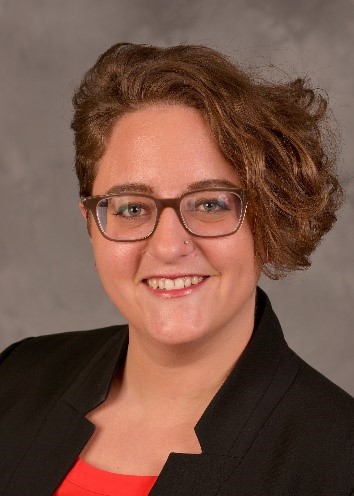
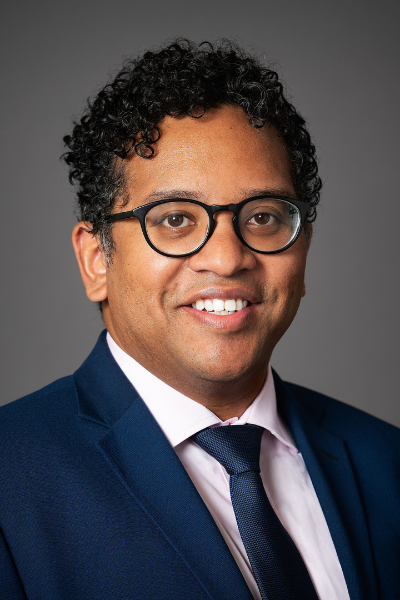





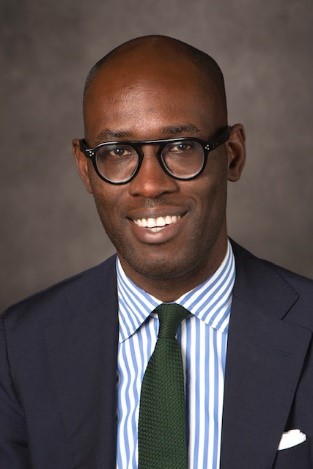








Technology Assessment Working Group
Co-Leads


Members






















